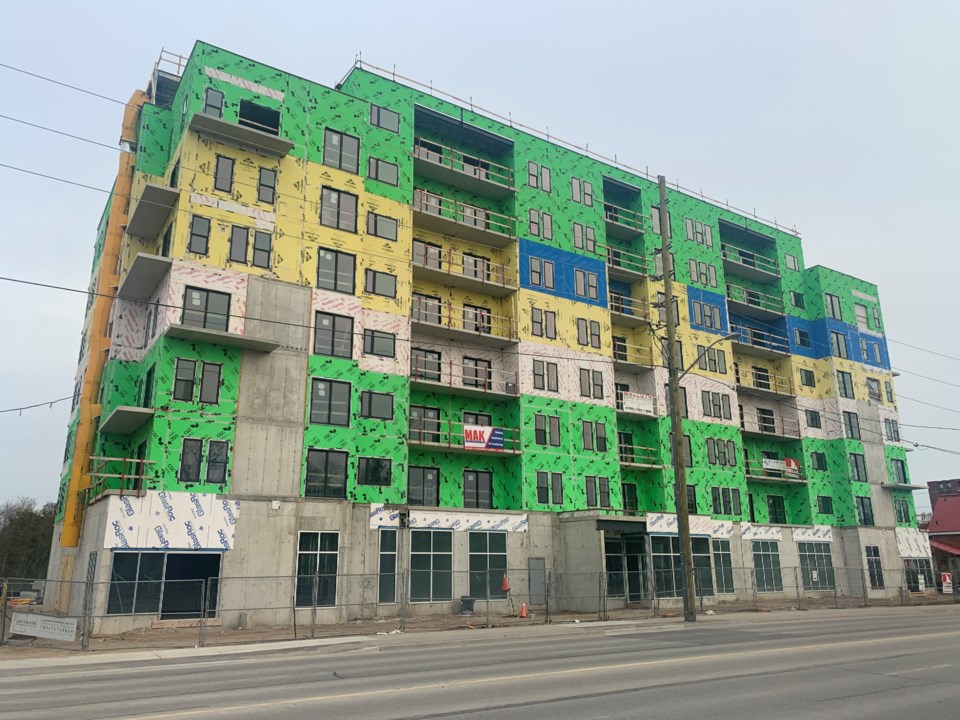The number is down, but it’s still high.
A recent presentation to city council showed the number of approved residential units without building permits at 13,002 in Barrie.
“There are a lot of units approved by council for which no building permit has been applied for — 13,000 to be specific,” said Mayor Jeff Lehman on Monday. “This is an issue Big City Mayors have been talking about.
“Sometimes this is due to factors like design issues or construction timing, but sometimes it’s because projects are approved and then sold or stalled by the owner," the mayor added. "With construction cost uncertainty, supply and labour shortages, and inflation, I fear we may see more of this, not less.
“Some of that is inevitable with economic conditions, but some can be resolved with federal and provincial government action to help the industry,” Lehman said. “In the future, it would be good if approvals could be tied to construction timing, but as of today municipalities don’t have that power.”
Approved but unbuilt houses, townhomes, apartments, etc., has become an issue in Barrie because of its affordable housing crisis.
But more so since last February when Michelle Banfield, the city’s director of development services, told council Barrie had about 19,000 residential units approved but not built. As this relates to population targets, the city averages about 2.7 people per unit — and so if these 19,000 units were occupied Barrie would have an additional 53,000 people living here, she said.
“The simple answer to housing... is housing,” Lehman said. “Barrie has a severe shortage of purpose-built rental housing. Getting more apartments built will help bring rent down and help more people find reasonably priced apartments. In general, more housing starts is a good thing on this front, even if some new units are purchased and then rented.”
At its Sept. 21 meeting, city council heard an Invest Barrie update that included a more detailed look at Barrie’s housing stock.
Reporting on all active development applications received between 2015 and 2021, the number of residential units in the pipeline was 26,683.
The increase from 19,000 is due to now including units tied to rezoning applications, in addition to site plans and plans of subdivision, and including retirement units since they are also homes for people. There are sometimes variations from initial to final approvals and the city doesn’t know the exact unit counts for townhouse blocks in larger plans of subdivision.
But if the city wants to focus only on residential units tied to approved applications and those eligible to obtain building permits, the number of residential units in the pipeline was 17,985 as of Sept. 12, 2022.
And if the city subtracts units that already have building permits issued, 4,983, Barrie is left with 13,002 residential units which are approved but haven’t seen any action yet in terms of an issued building permit.
“The good news in the presentation is that we are seeing a big jump in starts,” Lehman said. “Barrie’s housing starts are up by a lot in 2022, and that's after a big jump already in 2021. We're getting it done.
“But it will take time for the units to be built and on the market. And we need more of the most affordable housing for sure, ie. modestly priced rentals, as well as social and supportive housing," he added.
There were 1,056 dwelling units started to the end of August. By the same time last year, Barrie had 644 dwelling units started and 1,193 by year’s end. In 2020, there were 576 dwelling units started by August’s end, and 688 in total for the year.
Last month the Ontario government introduced legislation that would give the mayors of Toronto and Ottawa more responsibility to deliver on shared provincial-municipal priorities, including building 1.5 million new homes during the next 10 years.
In February, the province published a report from the housing affordability task force which highlights expert recommendations for measures to increase the supply of market housing and address the housing crisis.
The task force is billed as part of Ontario’s ongoing three-part consultation with industry, municipalities and the public to help the government identify and implement solutions to address the housing supply crisis.



